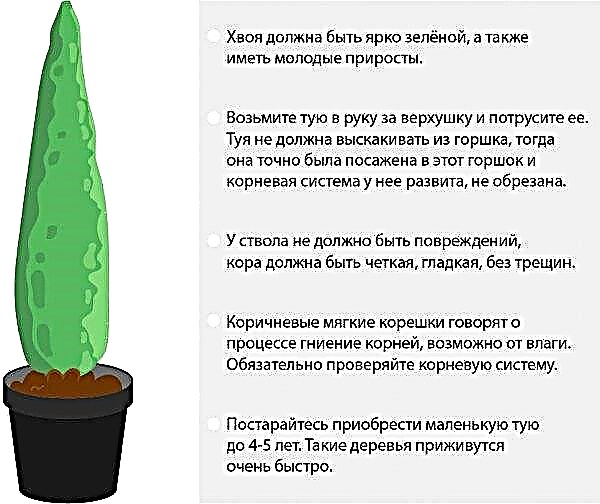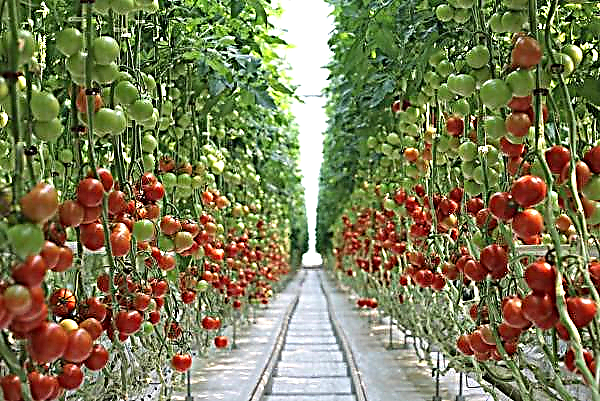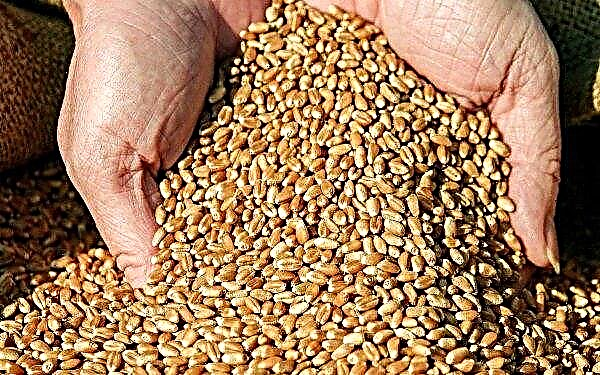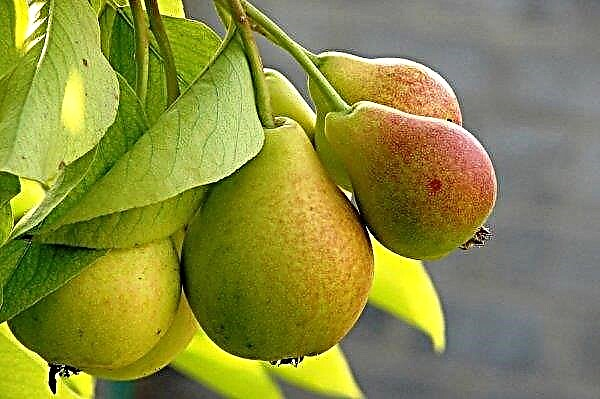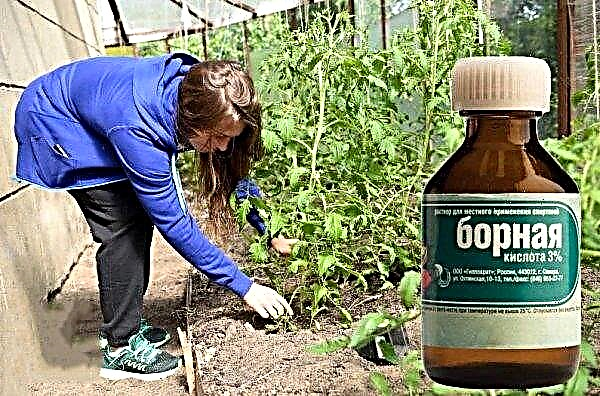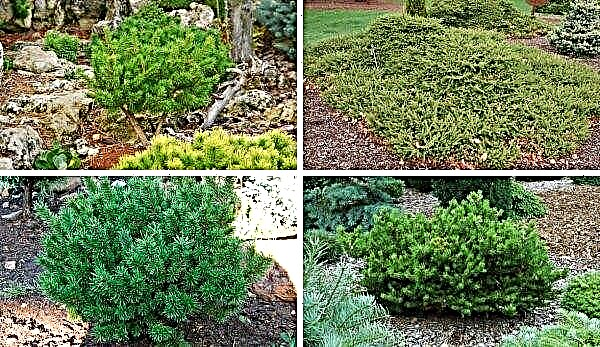Eggplants are known for their moodiness and whimsical care. However, like any vegetable crop, they need good living conditions and regular care. Often inexperienced gardeners are faced with the problem of wilting and yellowing of foliage. What factors lead to the formation of this unpleasant situation, and what to do to eliminate it, let's figure it out.
Why do eggplant leaves wither
Eggplants are very sensitive to environmental conditions and immediately react to any negative changes with their appearance, in particular, wilting of leaves.
In the greenhouse
During greenhouse cultivation, the plant almost never undergoes harmful environmental influences, such as wind, rain, frost, scorching sun, etc.  But, despite this, there are a number of factors that can affect the health of the culture and lead to the fact that its foliage will begin to fade:
But, despite this, there are a number of factors that can affect the health of the culture and lead to the fact that its foliage will begin to fade:
- Too high temperature indicators. If in a greenhouse for a long time high temperatures prevail (above + 30 ° C), then due to a moisture deficit the leaf plates begin to fade, and subsequently die.
- Lack of moisture in the ground. In order for a plant to fully develop and grow, it needs to provide regular, high-quality watering. Saturation of the soil with sufficient water allows you to normalize all vegetative processes and activate plant growth.
- Nitrogen-based fertilizer deficiency. Such top dressing is the most effective way to activate and stimulate the growth of greenery, which is why their lack, especially in the initial stages of vegetable development, can lead to leaf depletion, their further withering.
- Soil composition. The soil can have a negative effect on the foliage of the plant. Eggplant perfectly take root on loose, nutritious soils with a neutral level of acidity. However, they do not like to grow on the ground, where tomatoes, potatoes, peppers were cultivated before.
Plants that are grown in greenhouses are often subjected to such an ailment as fusarium wilt. The fungus infects the root system of the eggplant, parasitizes in other areas of the plant. The disease can be transmitted through soil, seed, plant debris.Important! One of the reasons for leaf wilting can be a plant transplant. Since the growing conditions of seedlings in a room and in a greenhouse differ, the culture will need time for acclimatization and adaptation.
In the open ground
When cultivating eggplant in open ground, problems with leaf wilting may also occur. 
- Sharp temperature jumps. Too early planting of crops in the soil can lead to wilting and death of foliage, due to the large difference in the indicators of night and day temperatures.
- Acidic soil. With frequent watering, water stagnates for a long time on the surface, which provokes acidification of the soil and, as a result, wilting of greenery.
- An excess of sunlight. A long stay of the plant in direct sunlight can adversely affect their condition.
- Fungal affection. Eggplant, which is grown on soil with a high content of nitrogen or fresh manure, can undergo, in addition to fusarium wilting, verticillosis, the action of which is aimed at partial wilting of the leaves, and then their death.
Did you know? The tropical regions of India, where it began to be cultivated more than 1,500 years ago, are considered to be the birthplace of eggplant. In Europe, the vegetable appeared in the middle of the XV century.
What to do and how to solve the problem
Of course, methods for solving the problem of wilting leaves on eggplant will be determined by the reason they were caused by:
- Dry, too warm air. At high temperatures in the greenhouse, regular ventilation should be carried out, as well as water containers located inside the room, due to which moisture will evaporate and moisten the air.
- Top dressing. The lack of mineral and organic fertilizers in the soil can have negative consequences for eggplant growth, so fertilizers must be applied regularly at least 4 times a season: 2 weeks after transplanting, during flowering, during fruit formation, one month before harvesting.

- Crop rotation. In order to prevent the plant from withering, it is necessary to observe the principles of crop rotation and not to plant eggplants in the same area for 2 years in a row. The best precursors for this crop are bell peppers, cabbage, cucumbers.
- Diseases To prevent the development of various ailments on the plant, prophylactic spraying of foliage should be carried out using modern biological products. Already diseased bushes should be treated with fungicides, for example, Fitosporin, Trichodermin. Specialists also recommend that, as a prophylaxis of ailments, decontamination of all equipment: shovels, knives, containers for storing seedlings.
- Temperature jumps. Avoiding wilting of the leaves of the culture due to sharp temperature changes is possible if you plant the plant in well-warmed soil, with stable daytime air temperatures above + 15 ° С.

- Sun rays. In order not to expose the eggplant to the harmful effects of direct sunlight, seedlings should be planted in well-lit areas where the rays of the sun will get it only in the morning and evening hours.
- Watering. Experts recommend a complete revision of the plant's irrigation system. It is impossible to apply cold water for moistening. The need for irrigation can be determined by drying the topsoil. Do not allow prolonged drying of the soil or, conversely, severe waterlogging.
Important! When moistening the culture, it is necessary to use water whose temperature is equal to or several degrees below the temperature of the soil.
How to prevent leaf wilting
You can prevent leaf wilting on eggplants by strictly observing the basic rules of agricultural technology for growing crops:
- Plant seedlings only in well-warmed, cleaned from old vegetation soil, enriched with a sufficient amount of mineral and organic substances.
- Strictly follow the irrigation and dressing scheme.
- Before planting in a greenhouse or open ground, seedlings should be hardened in 2 weeks, taking seedlings out into the street and daily increasing the time spent in the fresh air.
- Perform preventive spraying of the plant using a copper-soap emulsion (1 tsp of copper sulfate, 2 tbsp of grated laundry soap diluted in 10 l of water).
- Do not allow the soil to dry out, use only standing, warm water during irrigation.
- In the greenhouse, constantly maintain the temperature at + 25 ° C (+/- 5 degrees), carry out regular ventilation.
- Carry out a visual inspection of plants for infections. Isolate the affected bushes, treat all the rest with special preparations.
Eggplant - the plant is quite demanding and needs to create comfortable conditions for growing.Did you know? Of all vegetable crops, eggplant contains the most balanced composition of active biological substances and mineral components. That is why it is recommended to use it for pregnant and lactating women, as well as children.
 Only strictly observing the basic agrotechnical rules, carefully following the plant, one can avoid many harmful consequences, as well as achieve excellent yield of delicious and extremely healthy fruits.
Only strictly observing the basic agrotechnical rules, carefully following the plant, one can avoid many harmful consequences, as well as achieve excellent yield of delicious and extremely healthy fruits.






